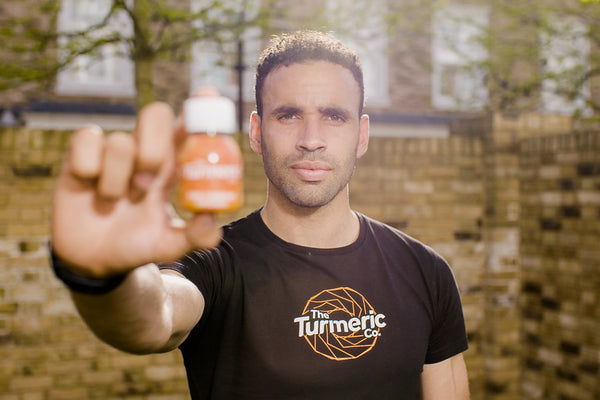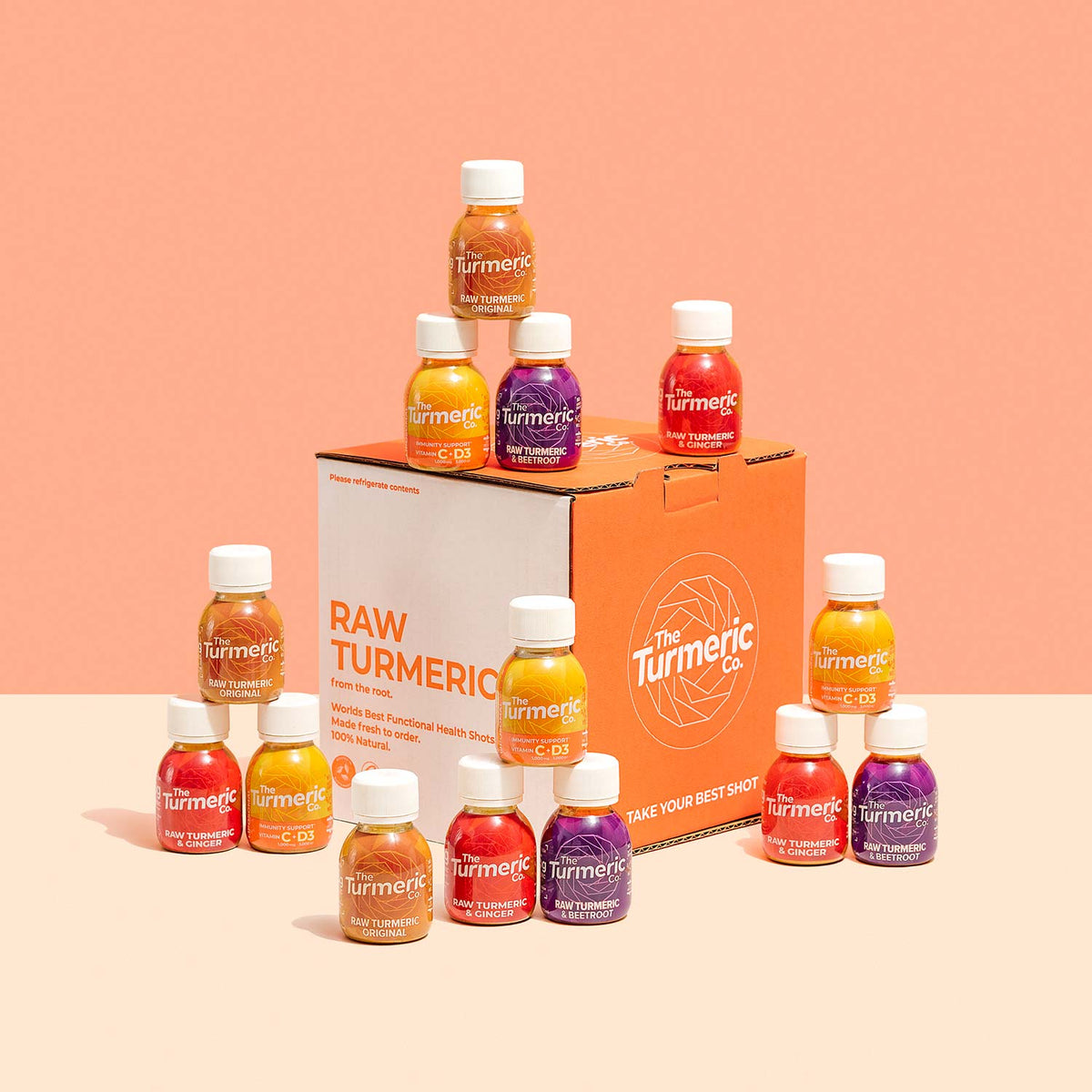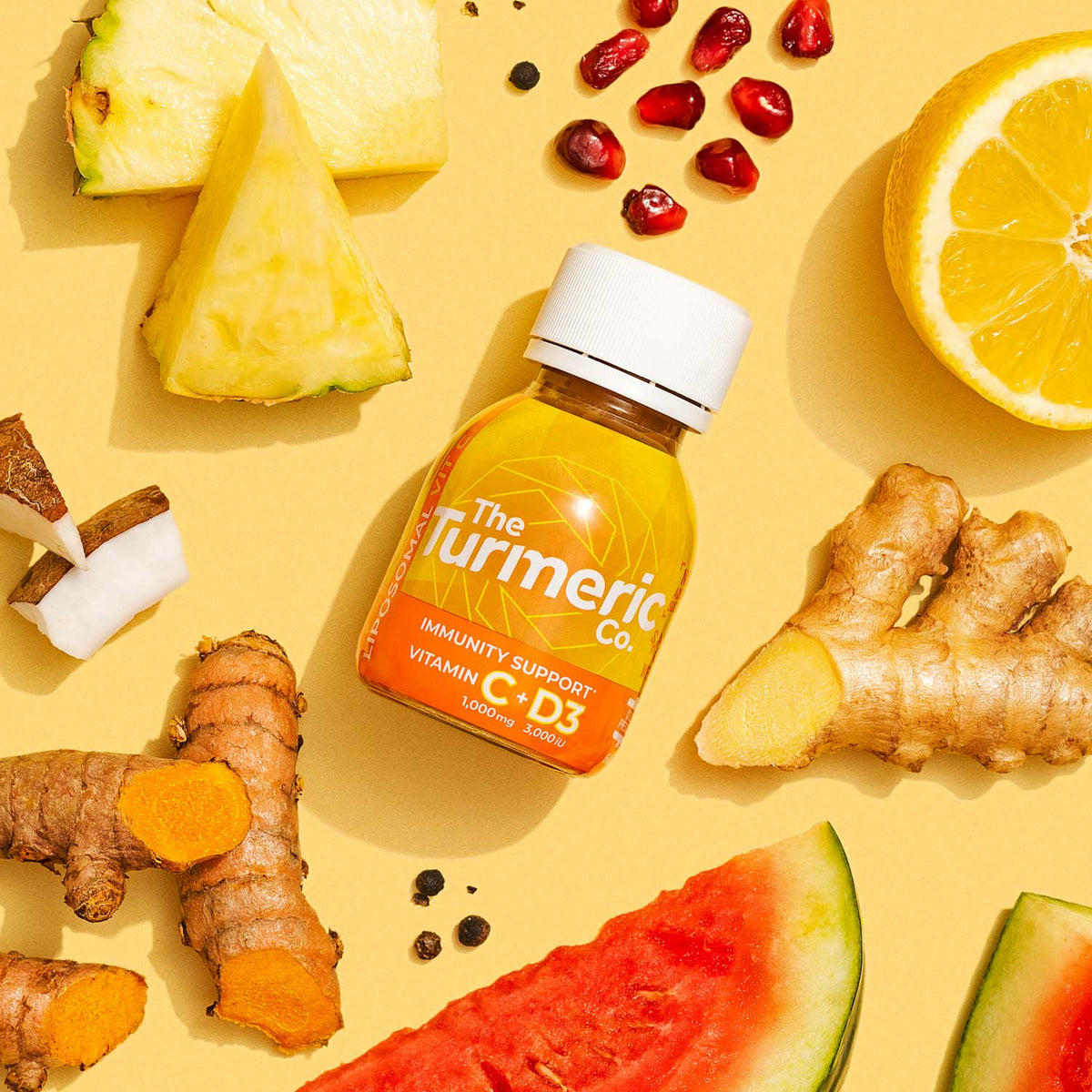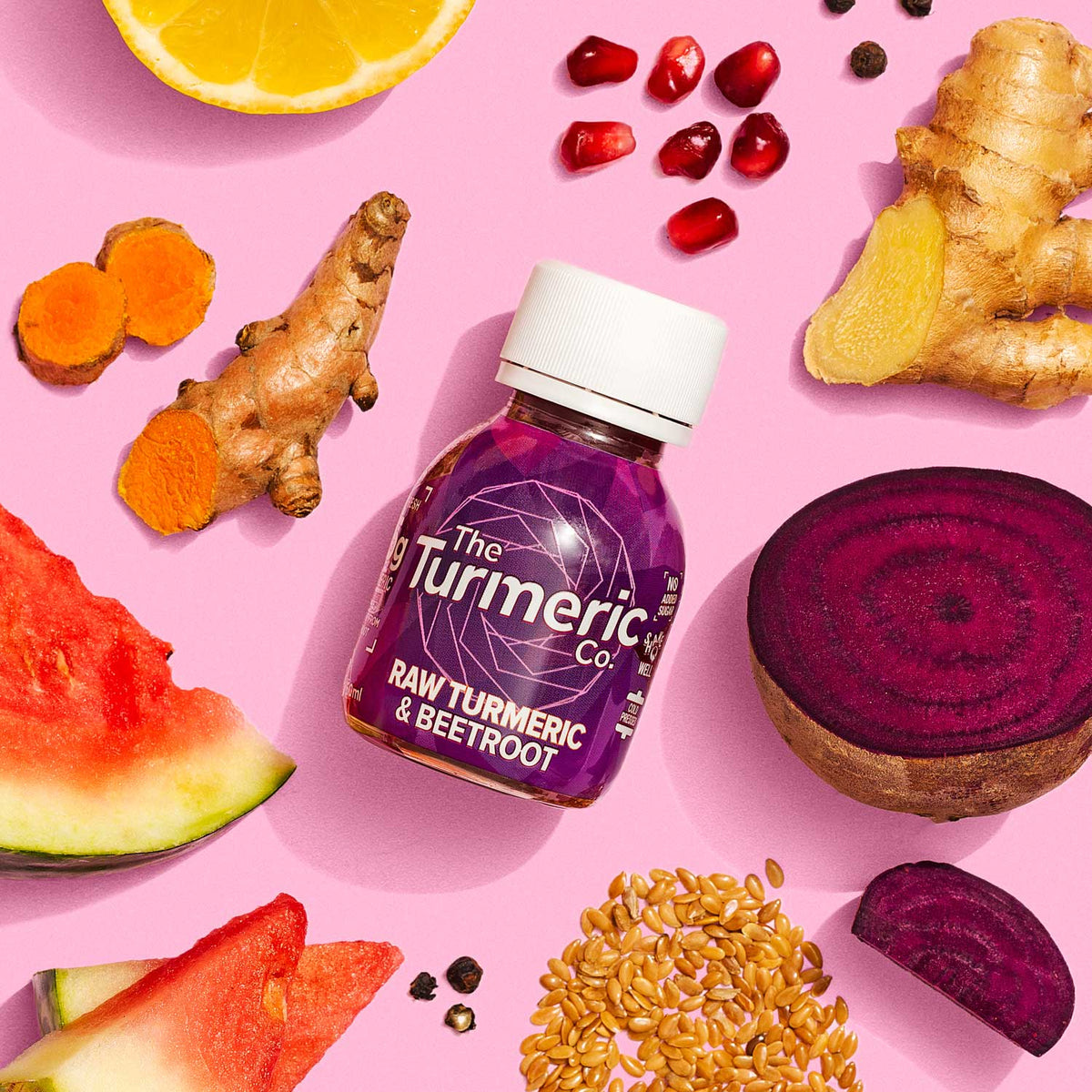Is Turmeric Good for Skin?
You might be aware of some of the proposed health benefits of turmeric. From being linked to reducing inflammation, to containing health-boosting antioxidants – it’s one potent root. However, if you’re always staying on top of the latest skincare trends, then you’ll be intrigued to learn about some of the turmeric benefits for skin too. Whether you suffer from a specific skin condition, or you simply love to add new steps to your daily skincare regime – these proposed benefits of turmeric for your skin will certainly excite you.
It Could Help to Alleviate Inflammatory Skin Conditions
Due to the suggested anti-inflammatory properties of turmeric, it may be able to help a number of inflammatory skin conditions, such as psoriasis and eczema.
Eczema is one of the most common skin conditions, affecting up to 10% of adults and 30% of children worldwide. Some of the most common symptoms include dry, itchy and inflamed skin, which can be truly uncomfortable. Similarly, psoriasis symptoms include red, crusty and flaky patches of skin all over the body due to an overproduction of skin cells.
There are a number of products available to help alleviate these conditions, however, many people have found success with natural remedies, such as turmeric, which has been used as a treatment for skin conditions for centuries.
This is thought to be due to the anti-inflammatory properties of curcumin, which can help to ease the inflammation and redness associated with these conditions. Additionally, the antioxidant properties of turmeric could help to preserve healthy cells, minimising future flare-ups.
You can Achieve an Enviable Glow

If you’re on a quest for healthy, glowing skin then turmeric might just be the thing you’ve been looking for. With the suggested antioxidant and anti-inflammatory properties we mentioned earlier, turmeric can help to reduce redness and give you that ‘glowing from within’ look.
Your Wounds May Heal Faster
Thanks to the suggested anti-inflammatory properties of turmeric, it could help to heal wounds faster.
There are several wound healing phases, including:
- Haemostasis
- Inflammatory
- Proliferative
- Maturation
The haemostasis phase is the first stage of wound healing, which happens just after the wound has occurred, helping to stop the bleeding. The next phase is the inflammatory phase, where the body works to destroy bacteria and remove debris, preparing the body for new tissue growth. This is the phase which could be accelerated with the use of turmeric, as it has been shown to help lower the body’s inflammatory response to wounds.
The next stage, the proliferative phase, helps to fill and cover the wound by generating new tissue and cells to cover the area. Finally, the maturation phase is where the new tissue becomes stronger and more flexible, just like the skin surrounding it. This means turmeric could be linked to helping the healing of skin blemishes and sores.
Acne Scarring May be Reduced
There are many products and solutions available to help improve the appearance of acne scars. However, turmeric may be another natural solution to try. With anti-inflammatory and antioxidant properties, it has been suggested that turmeric may help to fade hyperpigmentation, including that associated with acne scarring (post-inflammatory hyperpigmentation, or PIH, to give it it’s full name).

Additionally, the anti-microbial properties along with these proposed anti-inflammatory benefits could help to reduce the occurrence of acne breakouts, treating the skin inflammation associated with them.
Whether you treat yourself to some fancy new turmeric skincare products, or enjoy a raw turmeric shot as part of your daily routine – it’s certainly worth exploring the potential benefits that turmeric may have on acne.
It Might Make You Look Younger
If injectable cosmetic treatments aren’t your thing and you’ve tried what seems like every anti-aging moisturiser, night cream and serum on the market, then it might be worth adding turmeric to your skincare regime.
But how exactly can this orange spice help to slow down the visible signs of aging?
Well, with potent antioxidant properties, turmeric helps to reduce free radical damage. This can occur from processes within the body (yes, the body itself produces pesky free radicals), as well as external factors, such as UV damage, smoking and pollutants.
So, what’s the problem with free radicals?
Free radicals can be responsible for the breakdown in collagen, resulting in fine lines, wrinkles and loose skin, which can age you dramatically. Although we’re all exposed to free radicals every day, antioxidants such as turmeric can help to reduce the damage caused to the skin, helping to slow down some of the signs of aging.
How to use Turmeric on Your Skin
Now you know about the turmeric benefits for skin, you might be wondering how to incorporate it into your daily regime. Whether applied topically, consumed as a supplement, or incorporated into a healthy, skin-loving diet – it’s worth experimenting to see what works best for you.

A raw turmeric shot is one of the best ways to take turmeric as it is in its most bioavailable form, giving yourself the best chance of absorbing it and reaping the benefits. However, if you’re looking to apply turmeric topically, then a DIY turmeric face mask is the ideal choice.
How to Make a Turmeric Face Mask
For Brighter, Glowing Skin
If you’re looking to hydrate and nourish your skin for a glowing complexion, then this is the turmeric face mask for you.
Ingredients
- 2 tsp ground turmeric
- 3 tbsp natural yogurt
- 1 tsp olive oil
Simply mix up your ingredients in a bowl, apply to your face and sit back and relax for 10-20 minutes. Rinse with lukewarm water to reveal your glowing complexion.
Turmeric Face Mask for Acne
If you’re looking to reduce the appearance of acne scarring, then this could be the face mask for you.

Ingredients
- 1 tsp ground turmeric
- 1 tbsp manuka honey
- ½ tbsp milk
Mix the ingredients into a paste and apply to your face and decolletage. Relax for 10-15 minutes and rinse with warm water. Try to apply at least twice per week alongside your existing skincare regime.
Anti-aging Turmeric Face Mask
Step away from pricey cosmetic treatments and pick up your mixing bowl – the ingredients in this anti-aging face mask could help to reduce the visible signs of aging.
Ingredients
- 1 tsp ground turmeric
- 1 tbsp lemon juice
- 1 tbsp coconut oil
Make sure your coconut oil is room temperature, then simply mix in the lemon juice and ground turmeric for a relaxing face mask that might just reduce those pesky signs of aging.
From reducing acne scarring, to promoting a glowing complexion – there are several benefits that turmeric is said to have for the skin. Whether you get to work in the kitchen and whip up your own turmeric face mask or supplement your diet with a delicious raw turmeric shot – your skin may just thank you for it!

The Hal Robson-Kanu Guide To Fitness & Nutrition
Gain exclusive insight into habits that will make every day a healthy and fulfilling one.













